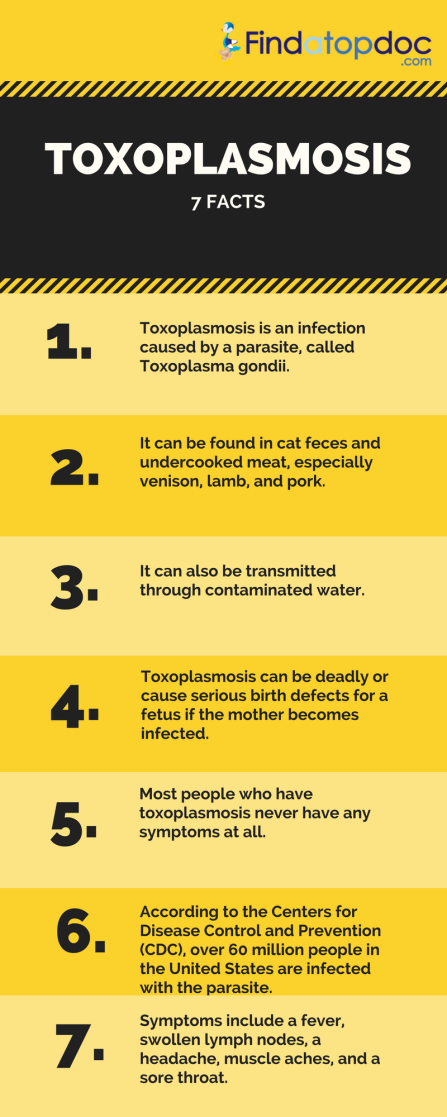
Source
Symptoms
Most healthy people who are infected with toxoplasmosis have no signs or symptoms and aren't aware that they're infected. Some people, however, develop signs and symptoms similar to those of the flu, including:
- Body aches
- Swollen lymph nodes
- Headache
- Fever
T. gondii is the parasite that causes toxoplasmosis. You can catch it from contaminated meat. You can also get toxoplasmosis by drinking contaminated water. In rare cases, toxoplasmosis may be transmitted through a blood transfusion or a transplanted organ. The parasite can also exist in feces. This means it can be found on some unwashed produce that has been contaminated with manure. Wash your produce thoroughly to prevent toxoplasmosis.
Treatment
Once a diagnosis of toxoplasmosis is confirmed, you and your doctor can discuss whether treatment is necessary. In an otherwise healthy person who is not pregnant, treatment usually is not needed. If symptoms occur, they typically go away within a few weeks to months. For pregnant women or persons who have weakened immune systems, medications are available to treat toxoplasmosis.